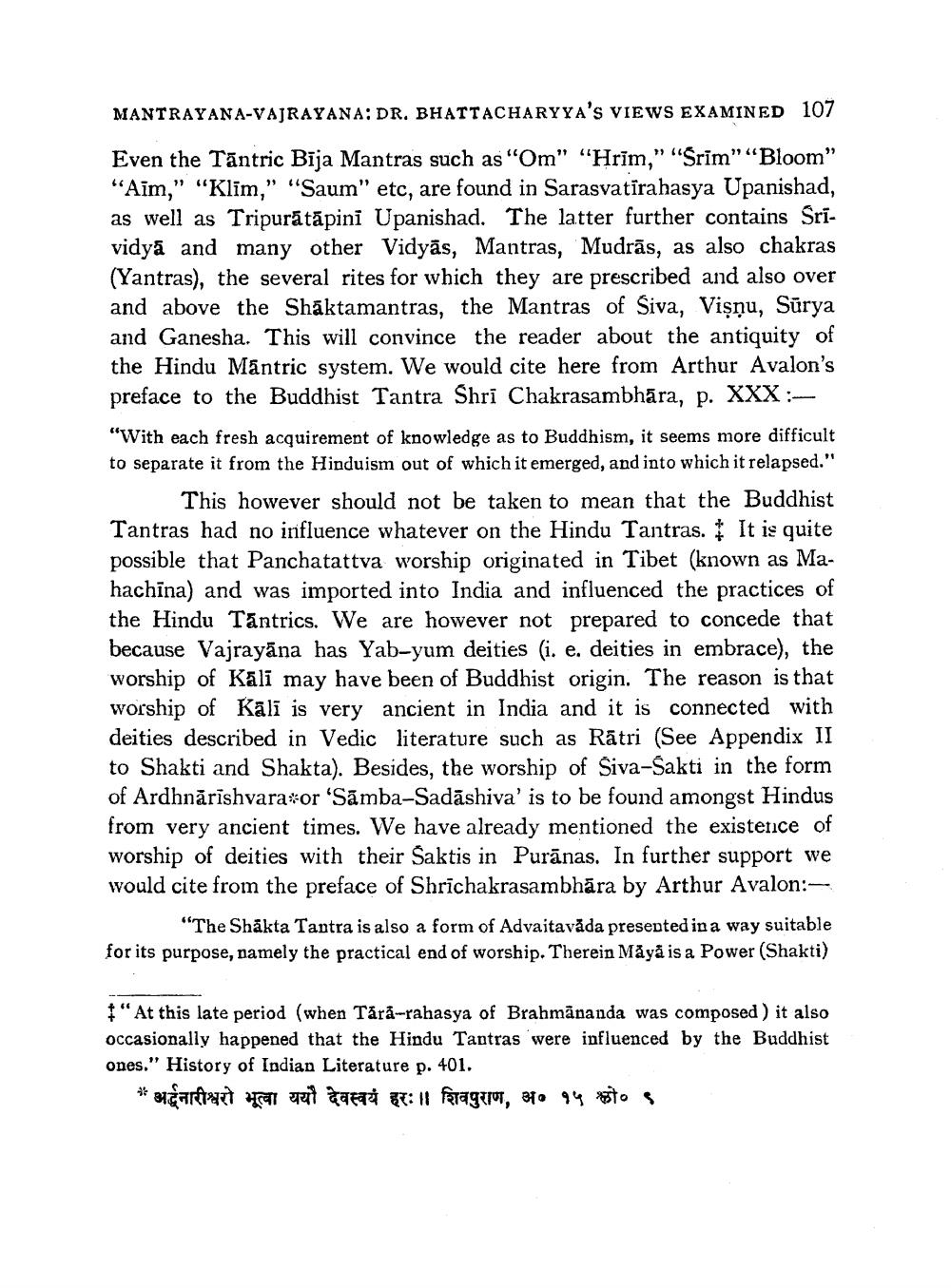________________
MANTRAYANA-VAJRAYANA: DR. BHATTACHARYYA'S VIEWS EXAMINED 107
Even the Tāntric Bīja Mantras such as "Om" "Hrīm," "Srīm" "Bloom" “Aim," "Klim," "Saum" etc, are found in Sarasvatîrahasya Upanishad, as well as Tripurā tāpini Upanishad. The latter further contains Srividyā and many other Vidyās, Mantras, Mudrās, as also chakras (Yantras), the several rites for which they are prescribed and also over and above the Shāktamantras, the Mantras of Siva, Vişņu, Surya and Ganesha. This will convince the reader about the antiquity of the Hindu Mantric system. We would cite here from Arthur Avalon's preface to the Buddhist Tantra Shri Chakrasambhāra, p. XXX :"With each fresh acquirement of knowledge as to Buddhism, it seems more difficult to separate it from the Hinduism out of which it emerged, and into which it relapsed."
This however should not be taken to mean that the Buddhist Tantras had no influence whatever on the Hindu Tantras. It is quite possible that Panchatattva worship originated in Tibet (known as Mahachīna) and was imported into India and influenced the practices of the Hindu Tantrics. We are however not prepared to concede that because Vajrayāna has Yab-yum deities (i. e. deities in embrace), the worship of Kālī may have been of Buddhist origin. The reason is that worship of Kali is very ancient in India and it is connected with deities described in Vedic literature such as Rātri (See Appendix II
Shakti and Shakta). Besides, the worship of Siva-Sakti in the form of Ardhnărīshvara or 'Samba-Sadāshiva' is to be found amongst Hindus from very ancient times. We have already mentioned the existence of worship of deities with their Saktis in Purānas. In further support we would cite from the preface of Shrichakrasambhāra by Arthur Avalon:
"The Shakta Tantra is also a form of Advaitavāda presented in a way suitable for its purpose, namely the practical end of worship. Therein Mäyä is a Power (Shakti)
I "At this late period (when Tara-rahasya of Brahmananda was composed ) it also occasionally happened that the Hindu Tantras were influenced by the Buddhist ones." History of Indian Literature p. 401.
* अर्द्धनारीश्वरो भूत्वा ययौ देवस्वयं हरः।। शिवपुराण, अ० १५ श्लो० ९




